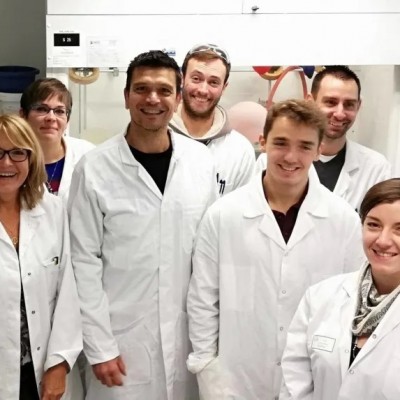Charity dedicated to the fight
against childhood cancer
against childhood cancer
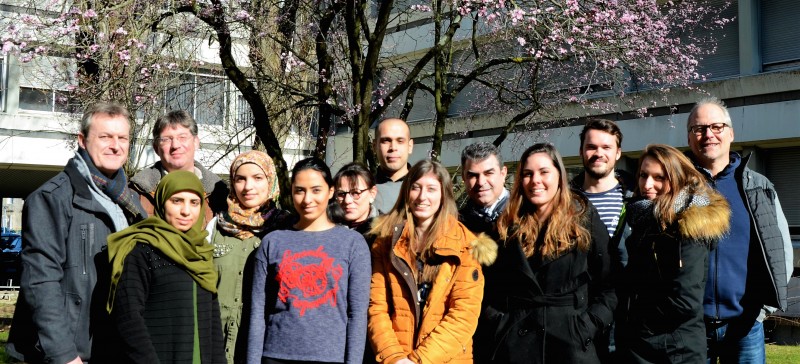
Since September 2014, Dr Martin Hagedorn has been leading a team of researchers (Caroline CAPDEVIELLE , Farah RAHAL, Justine CHARPENTIER and Mélissa MENARD) which devotes its research work to the identification of new therapeutic targets in brainstem tumors and to the improvement of its treatment methods. Work recognized by several European scientific teams & experts.
First of all, the team developed a new tumor model of DIPG in the chick embryo that makes it possible to test different anticancer drugs on the growth of tumor cells and obtain the result in a few days. It also makes it possible to evaluate the oncogenic role of certain genes in these tumors, including a very promising gene discovered by the team.
One of the promising drugs in the treatment of brainstem tumors, Panobinostat has been tested in clinical trials to assess its effectiveness in patients. Dr. Hagedorn's lab has identified two proteins whose expression increases sharply when DIPG cells are treated with Panobinostat. One of these two proteins plays an important role in the proliferation of DIPG cells and their ability to invade normal brain tissue. It is therefore likely that DIPG cells produce these two proteins to escape the harmful action of panobinostat. A major publication was written by the team and published by the world reference journal " Neuro-oncology ".
In addition, the project led by Farah Rahal under the leadership of Dr Martin Hagedorn aims to improve the treatment of children with brainstem tumors. These tumors, which are resistant to current chemotherapy regimens, generally have genome abnormalities called "epigenetic changes". The presence of these abnormalities makes brainstem tumor cells potentially sensitive to certain drugs capable of targeting these epigenetic alterations. One of these drugs targets the EZH2 protein which is heavily produced by brainstem glioma cells. The laboratory has shown that blocking the EZH2 protein by this drug leads to a decrease in the proliferation and migration of tumor cells and leads to their final elimination.
The team is testing a new chemotherapy approach which consists of "enclosing" the active anti-EZH2 molecule in a chemical envelope which will then be transported in inert form by the bloodstream to the tumor where it will be specifically released and eliminate the cells. tumors without affecting the normal tissues lining the blood vessels, in order to limit their toxicity and increase their effectiveness.
"We wish to thank the Eva Association for Life, the Groupama Health Foundation, the other parent associations and all the donors for making this project come true. We hope the results of our work will benefit children with this cancer. "
Publication (November 2019)
HDAC inhibition induces expression of scaffolding proteins critical for tumor progression in pediatric glioma: focus on EBP50 and IRSp53
https://www.ncbi.nlm.nih.gov/pubmed/31711240
https://doi.org/10.1093/neuonc/noz215
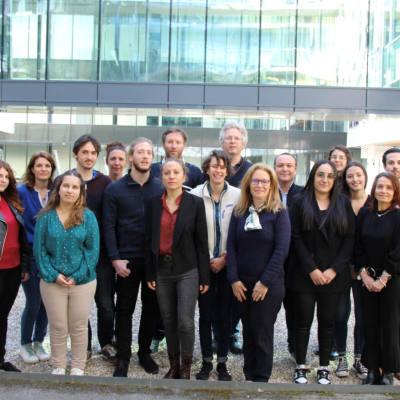
Eva pour la vie supports the Adapted Physical Activity project for children treated for Cancer and Insulin Sensitivity APACIS, led by Professor Marlène Pasquet, pediatric onco-hemato-immunologist at the children's hospital of the Toulouse University Hospital and Justine Thomas, APA teacher and doctoral student, as well as the recruitment of an APA position within this department.
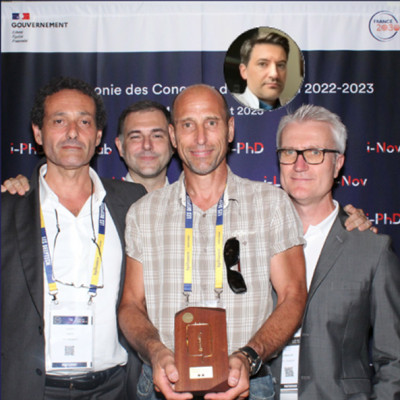
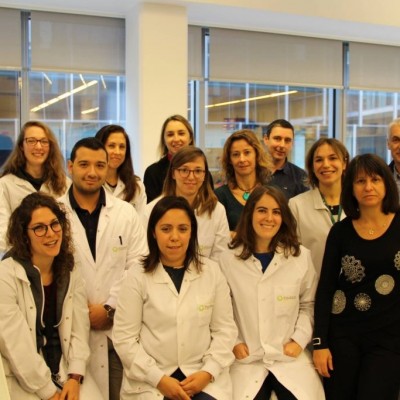
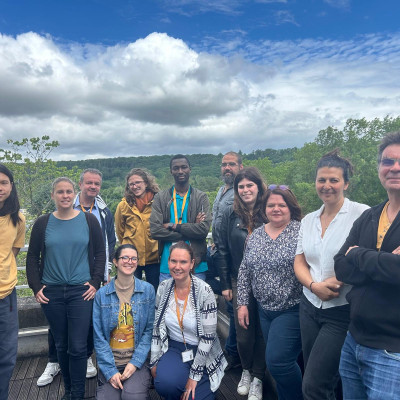
Eva pour la vie & Grandir Sans Cancer have decided to support the work of Dr. Célio POUPONNOT, at the Curie Institute, by funding the Project "Modeling of medulloblastoma using human cerebellar organoids and analysis of the effect of agricultural pollutants" through a grant. This research project includes a crucial environmental research component, the question of understanding in order to try to prevent being as important as the one that aims to better treat children with cancers ...
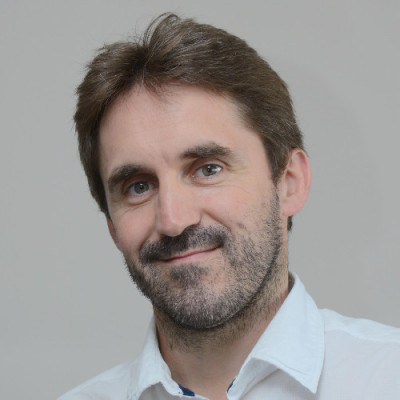
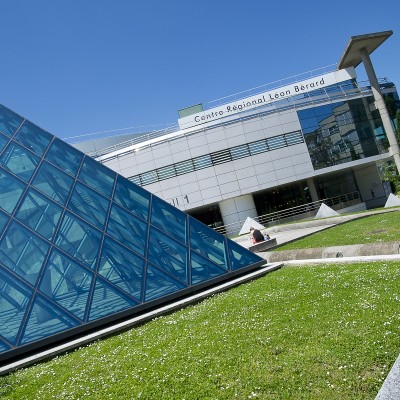
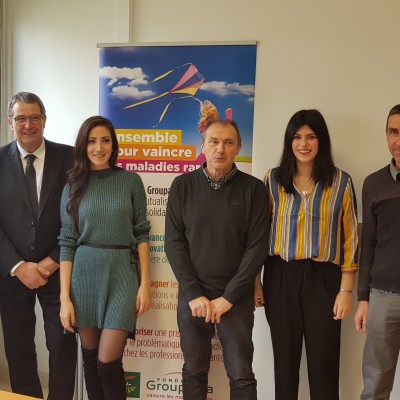
For more than 20 years, this teacher-researcher has been working on cancer. And it's been almost 10 years since he went to kidney cancer or renal cell carcinoma. By joining the team of Dr Christophe Grosset (Inserm, MiRCaDe team), he wanted to use his experience and take a new step forward by working on childhood cancer. He is the initiator of an ambitious project, which involves several surgeons, doctors and international researchers, on the study of nephroblastoma (or Wilms tumor) in children, co-funded by the association Eva pour la vie and Aidons Marina ...
Resistance to treatment is a major clinical problem, in particular in the case of osteosarcomas, bone tumors affecting children or adolescents. Indeed, chemotherapy, associated with surgery, is the central pillar of current treatment. However, many osteosarcomas are or become resistant to these antiproliferative drugs. Recurrences and / or the appearance of metastases are then frequent. 2 out of 5 patients cannot be cured! Osteosarcoma is therefore a pediatric cancer with a poor prognosis for which it is absolutely necessary to identify ways to counteract resistance to treatment in order to improve the chances of recovery for patients.
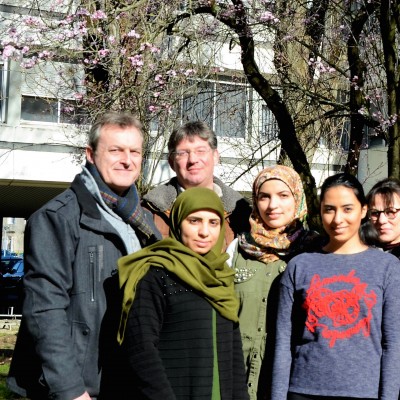
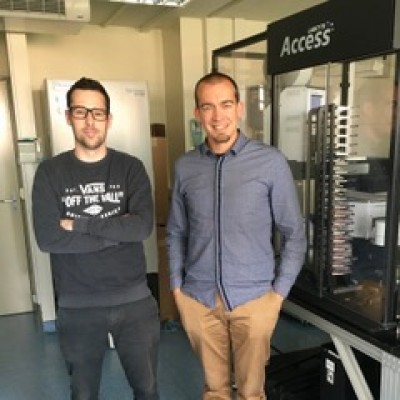
Dr Pasquier's research work mainly focuses on the repositioning of drugs which consists of testing, in new therapeutic indications, drugs already approved by the health authorities. The aim of this work is to identify new therapeutic targets for the most difficult to treat cancers and thus improve the care of patients suffering from these aggressive forms and refractory to treatment . In particular, pediatric cancers (neuroblastoma), brain tumors affecting children as well as adults (glioblastoma, medulloblastoma) as well as certain rare forms of cancer (angiosarcoma).
The work of the INSERM team co-directed by Dr Marie Castets (CR1 Inserm, HDR) and Dr Jean-Yves Blay (PUPH, HDR) focuses on cell death and cancers. Thanks to the support of Eva pour la Vie (55,000 euros) and other associations, this team is currently developing these lines of research on rhabdomyosarcomas, osteosarcomas and neuroblastomas ...
